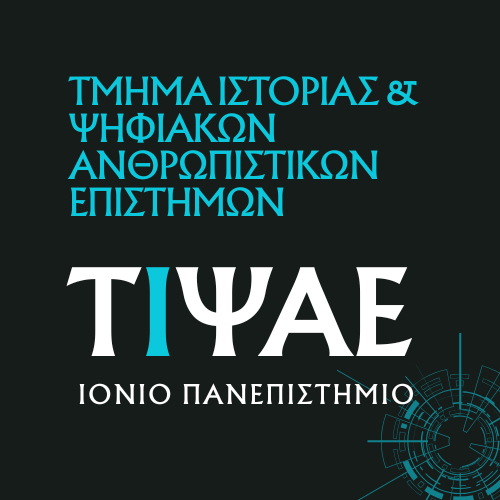HISTORY OF THE HELLENISTIC WORLD
Teaching Staff: Kralli Ioanna
Course Code: ΙΑΕ103
Course Type: Compulsory
Course Level: Undergraduate
Course Language: Greek
Delivery method: Lectures
Semester: 5th΄
ECTS: 5
E Class Page: https://opencourses.ionio.gr/courses/DHI188/
The fragmentation of Alexander’s empire. The wars of the Diadochoi and the creation of the new kingdoms. The attempts at control of mainland Greece, Asia Minor and the wider eastern Mediterranean. The nature of the monarchy. Administration and economy of the kingdoms. Greeks and non-Greeks. Relations between kings and poleis. The Greek poleis: economy-society-social life (festivals – theatre). Religion: old and new cults – the ruler cult - mysteries. Relations between the poleis. The progressive submission to Rome.
The students will be acquainted with the main aspects of Hellenistic monarchy as well as the administration of kingdoms; will be able to compare with monarchies of different periods; recognize elements of continuity and change between the Classical and the Hellenistic pepriods especially as regards the public life of Greek city-states.
Week #1: review of the 4th centrury: the fragmented Greek world and the rise of Macedon Alexander’s empire and legacy as regards monarchy and relations with the Greek poleis. .
The meaning and connotations of the term ‘Hellenistic’ – general features – the sources.
Week #2: 323-301 BC.: the attempts of the Diadochoi to control the eastern Mediterranean. The wars of the Diadochoi, the most important treaties and the opportunistic character of their alliances .
Week #3: 301-281 BC: the creation of the Hellenistic kingdoms and the establishment of dynasties.
Week #4: The nature of monarchy – monarchic ideology as seen on coins and sculpture.
Week #5: The Seleucid kingdom: the administration of the provinces – the relations with the various peoples – land owenership – economy and taxation- the poleis (old and new).
Week #6: Ptolemaic Egypt: administration – relations between Greeks and Egyptians – economy – land owenership - taxation.
Week #7: Relations between the Ptolemies and the Seleucids: the Syrian wars. The Attalid kingdom of Pergamon.
Week #8: Relations between kings and poleis: freedom and autonomy as propaganda and as reality: taxes-garrisons- award of privileges. The adjustment of the poleis to the new political reality – award of godlike and other honours. The case of Athens.
Week #9: The poleis’ society – the benefactors. The Gymnasium. The poleis’ social life: festivals, games, theatre. Relations between poleis .
Week #10: The administration and economy of the Macedonian kingdom. The relations of Macedon with southern Greece (until the 1st Macedonian War): the means of control, weakening and recuperation.
Week #11: The new political powers: the Achaian and the Aitolian Confederacies. Sparta: the socio-political crisis and the reforms of Agis and Kleomenes; the clash with the Achaian Confederacy – the creation of a ‘Panhellenic Symmachy under Antigonos III of Macedon.
Week #12+13: Rome and the Hellenistic world: the Macedonian Wars. The development of Roman imperialism and the conquest of the Greek world.
Week #14: Review of the main points.
Austin, M. M., The Hellenistic World from Alexander to the Roman Conquest: a Selection of Ancient Sources in Translation, Cambridge 20062
Cambridge Ancient History, τ. VII.1 (1984), τ.VII.2 (1989), τ.VIII (1989), Cambridge.
Chaniotis, A., War in the Hellenistic World, Οxford 2005.
Chaniotis, A. The Age of Conquests. The Greek World from Alexander to Hadrian, Cambridge, MA. 2018.
Χανιώτης, Α., Θεατρικότητα και δημόσιος βίος στον ελληνιστικό κόσμο, Ηράκλειο 2009.
Errington, R. M., A History of the Hellenistic World, Οxford 2007.
Erskine, A. (ed.), A Companion to the Hellenistic World, Oxford/Malden 2003.
Gehrke, H.-J., Geschichte des Hellenismus, Munich 1990.
Habicht, C. The Hellenistic Monarchies [trans. Peregrine Stevenson], Michigan 2006.
Lêvêque, P., Le monde hellénistique, Paris 1969
Rostovtzeff, M. The Social and Economic History of the Hellenistic World, 3 vols, Οxford 1941.
Shipley, G., The Greek World after Alexander 323-30 BC, London / New York 2000.
Walbank, F. W, The Hellenistic World, London 19812
Will, É., Histoire politique du monde hellénistique, Nancy 1979/82.
3 hour lectured courses (39 hours in total). Passages from ancient literary sources as well as inscriptions are examined in class (the relevant file is uploaded on the e-class). Maps, portraits of emperors and sketches of each lecture are presented on a computer screen (Power Point or PDF files; also uploaded on the e-class).
Written or oral examination at the end of the semester; in the case of failure, students are reassessed in September.
Back



